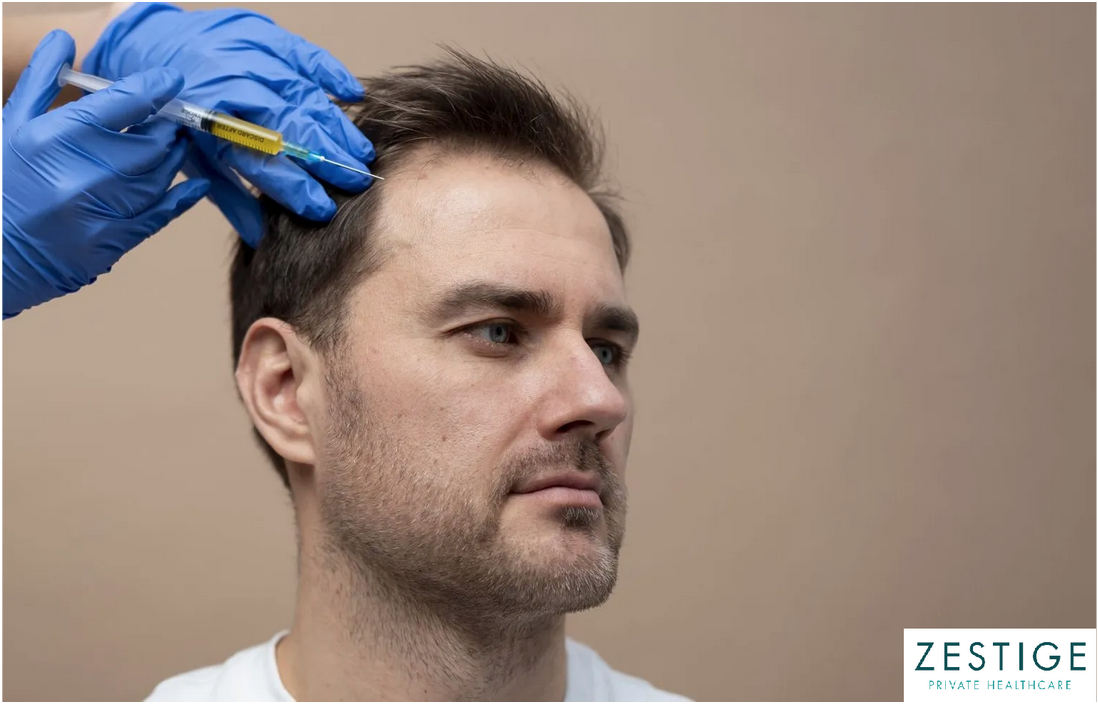When considering the journey of hair restoration, many individuals ponder the question of whether a second hair transplant is a necessary step. This contemplation is not just about vanity or aesthetics; it’s a deep dive into self-perception and confidence. Hair transplants, a widely sought-after procedure in the realms of cosmetic treatment, often stir up a mix of curiosity and concern among those who have already undergone the process once. Is a single procedure sufficient, or is there a need to revisit the surgeon’s chair?
Understanding Hair Transplant Procedures
A hair transplant, in essence, is a symphony of precision and expertise. It involves transferring hair follicles from a ‘donor site’ to a ‘recipient site’. Typically, the donor site is an area of dense hair growth, often at the back of the head. The recipient site, conversely, is the region experiencing hair thinning or baldness. This procedure is not just about relocating hair; it’s a strategic placement that considers future hair loss patterns and aesthetic appeal.
Key Points to Consider
- Techniques: Two primary techniques exist – Follicular Unit Transplantation (FUT) and Follicular Unit Extraction (FUE). Each has its advantages and implications for recovery and results.
- Recovery and Aftercare: Post-procedure care is crucial. It involves managing discomfort, ensuring proper wound healing, and following the surgeon’s guidelines on hair care.
- Expectation Management: Immediate results are not typical. Hair growth post-transplant is a gradual process, often taking several months to become noticeable.
Factors Influencing the Need for a Second Procedure
Why a Second Transplant May Be Necessary
- Progression of Hair Loss: Hair loss doesn’t halt post-transplant. A second procedure might be necessary as natural hair loss progresses.
- Desired Density and Coverage: Initial transplants may not always achieve the desired fullness, necessitating a second procedure for enhanced density.
- Ageing and Hair Changes: As one ages, hair characteristics change, which may prompt the need for a second procedure to maintain a natural look.
Questions to Ask Your Surgeon
- Given my hair loss pattern, what is the likelihood of needing a second transplant?
- How will my age and hair type affect the long-term results of the transplant?
The Role of Clinics and Costs
Choosing the Right Clinic: Selecting a reputable hair transplant clinic London or any city is more than just about location. It involves researching the clinic’s track record, understanding the expertise of the surgeons, and reviewing before-and-after photos of previous patients.
Navigating Costs: The hair transplant cost UK can vary widely based on several factors. These include the technique used, the extent of the transplant, and the surgeon’s expertise. It’s not just about finding the most affordable option; it’s about finding the best value for your specific needs.
Tips for Potential Patients
- Research Thoroughly: Invest time in understanding different hair transplant techniques and their associated costs.
- Consult Multiple Clinics: Don’t hesitate to seek opinions from various clinics to compare approaches and prices.
- Read Patient Reviews: Patient testimonials can provide insights into their experiences with the clinic and the procedure’s effectiveness.

Personal Considerations and Expectations
When embarking on the journey of a second hair transplant, it’s not just about what you see in the mirror; it’s about what you feel inside. The emotional and psychological aspects play a significant role in this decision.
Things to Consider
- Realistic Expectations: Understanding the limits of what a hair transplant can achieve is crucial. It’s about improvement, not perfection.
- Psychological Impact: Reflect on the reasons behind seeking a second transplant. Is it driven by a desire for self-improvement or external pressures?
- Long-Term Vision: Consider how this decision fits into your long-term goals and self-image.
Engaging in a candid conversation with yourself about these factors can guide you toward a decision that aligns with your true desires and expectations.
Evolution of Hair Transplant Technology
Hair transplant technology has not just evolved; it has transformed. Keeping up with these changes is essential when considering a second procedure.
Recent Advances
- Improved Techniques: Newer methods offer more natural results with less discomfort and shorter recovery times.
- Enhanced Precision: Technological advancements have led to more precise follicle placement, improving the overall aesthetic outcome.
- Broader Options: Innovations have expanded treatment options, including therapies that complement transplants for better results.
Staying informed about these advancements can help you make a more educated decision about undergoing a second transplant.
Lifestyle and Hair Health
Your lifestyle plays a pivotal role in both the necessity and success of a second hair transplant.
Dos and Don’ts
- Do: Maintain a healthy diet and lifestyle to support hair growth.
- Don’t: Engage in activities or habits that could jeopardize hair health, like smoking or excessive styling.
- Do: Use recommended hair care products that promote scalp health.
Considering these lifestyle aspects ensures you’re doing your part in making the most out of your hair transplant.
The Surgeon’s Perspective
Understanding the surgeon’s perspective on second hair transplants can provide valuable insights.
Key Insights
- Patient Selection: Surgeons assess various factors, including donor hair availability and scalp condition, before recommending a second transplant.
- Art of Balancing: Surgeons aim to balance achieving density with preserving donor hair for potential future needs.
- Customized Approach: Each case is unique, and experienced surgeons tailor their approach to individual patient needs.
Gaining an understanding from the surgeon’s viewpoint can demystify many aspects of the procedure and help set realistic expectations.
Conclusion
In conclusion, deciding on a second hair transplant is a multifaceted journey that goes beyond aesthetics. It involves a thorough understanding of the procedure, personal introspection, keeping abreast of technological advancements, lifestyle considerations, and gaining insights from experienced professionals. By addressing these areas coupled with hair transplant cost in the UK, individuals can make informed decisions that align with their personal goals and expectations, ensuring that their journey towards hair restoration is as fulfilling and successful as possible.
























































































































